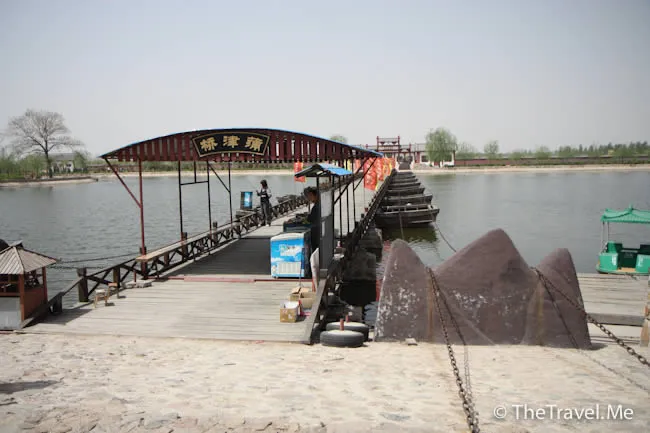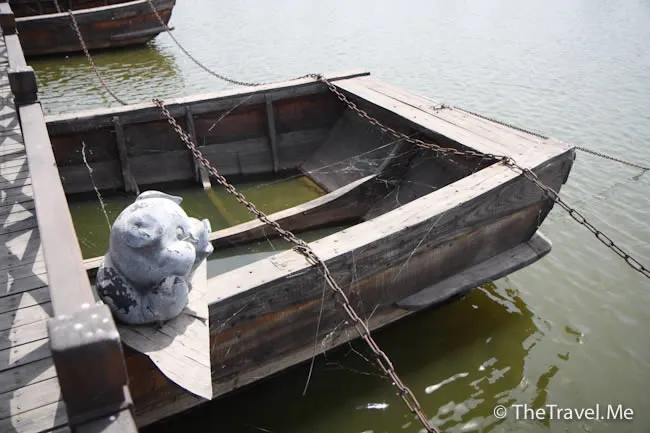Pujindu (Chinese: 蒲津渡) Historical Site is located in Yongji (永濟), a county-level city in the prefecture-level city of Yuncheng, in the southwest of Shanxi (山西)province, China. Pujindu was one of the biggest ferry crossings of Yellow River (黃河).
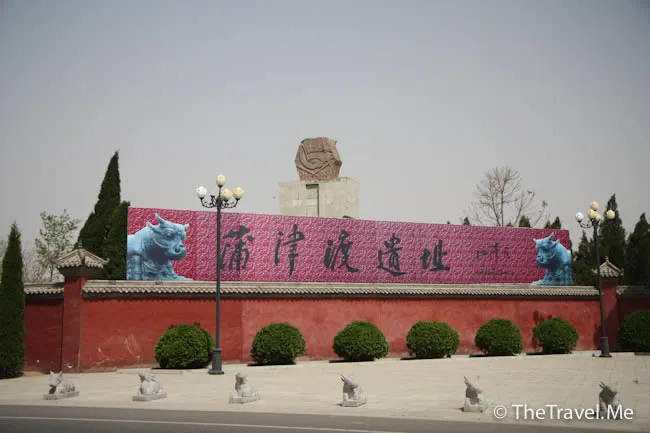
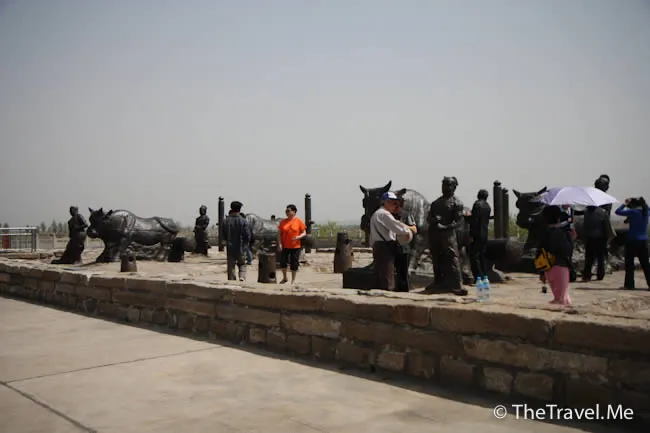
In 1989, archaeologists excavated 4 iron bull statues and 4 iron man statues which could be dated back to the Tang Dynasty (724AD), one of the biggest archaeological discoveries in China.
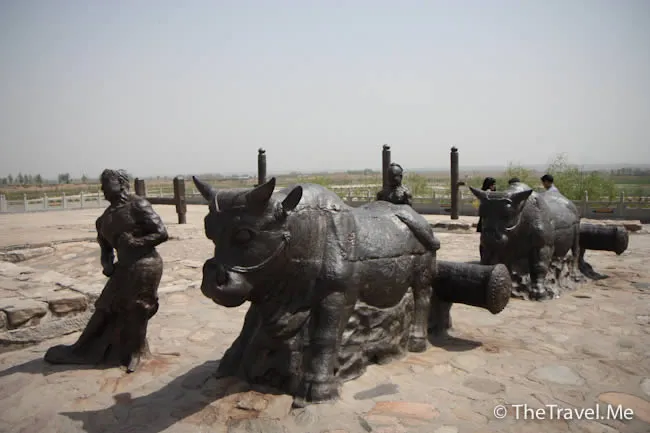
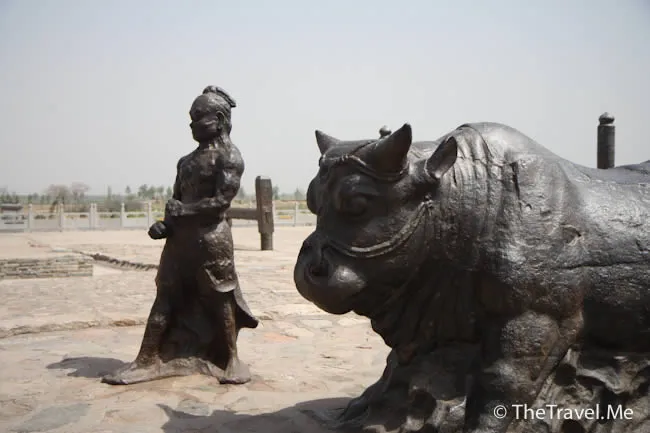
The 4 iron bull statues are almost the same sizes, but in different postures, each statue weighs around 30 tons, the biggest iron relics discovered in China.
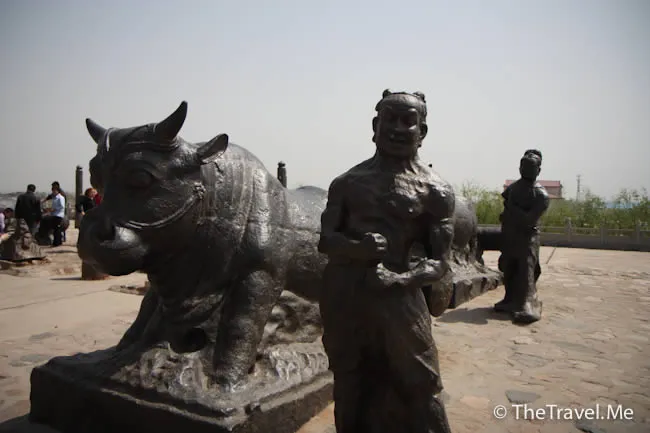
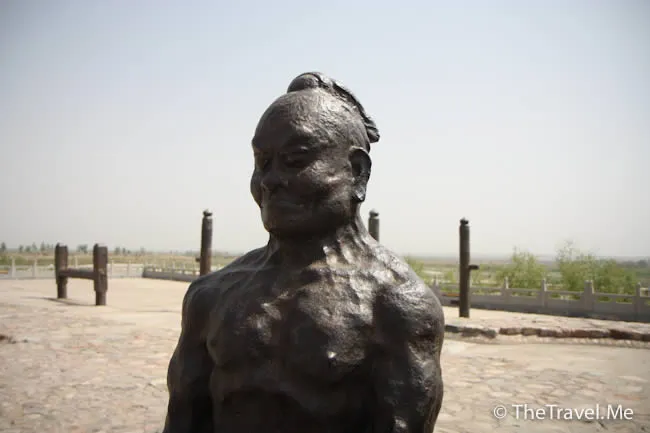
At the end of Yuan (元) dynasty (late 14th century), Pujindu was abandoned and those iron bull statues were submerged by the mud and water.
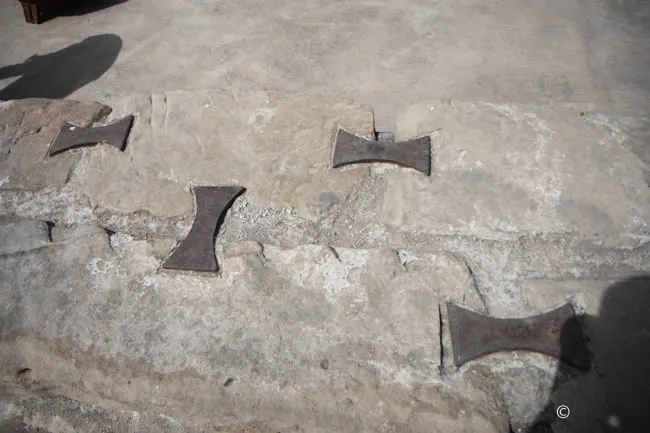
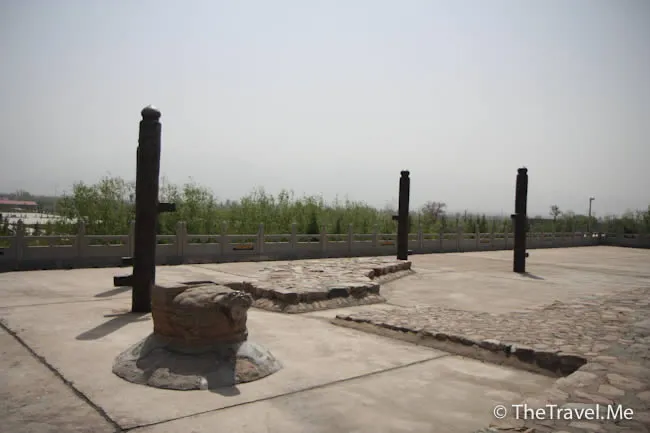
The 4 iron bull statues were used to fix the pontoon bridge across the Yellow River, since bull was deemed as ‘earth (土)’ in five elements (五行) in Chinese philosophy, which can subdue the element ‘water (水)’, people thought that the statues can stop the flood.
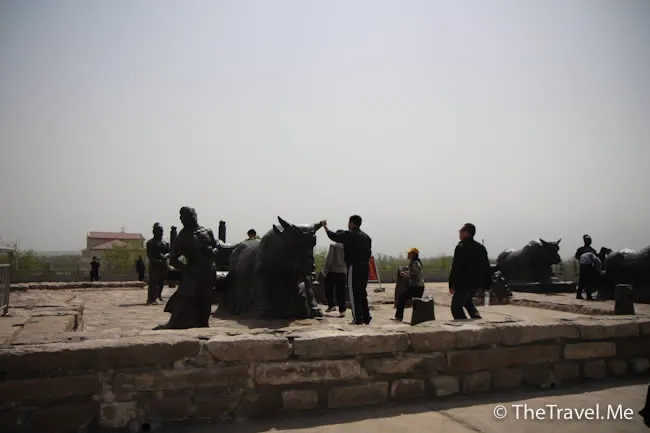
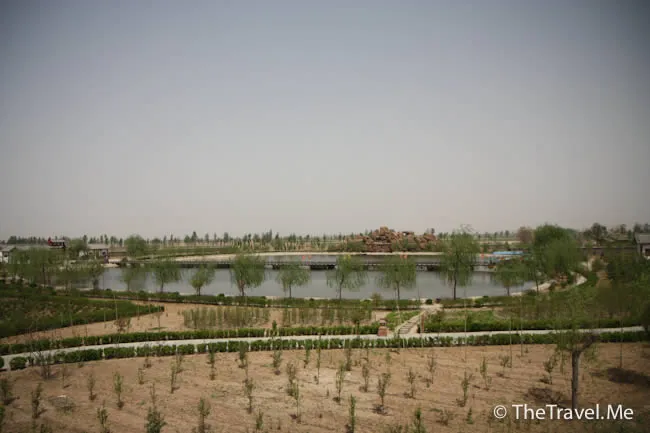
It is said that there’s used to be 8 iron bull statues, but now only 4 have been found, the other 4 are still unknown.
